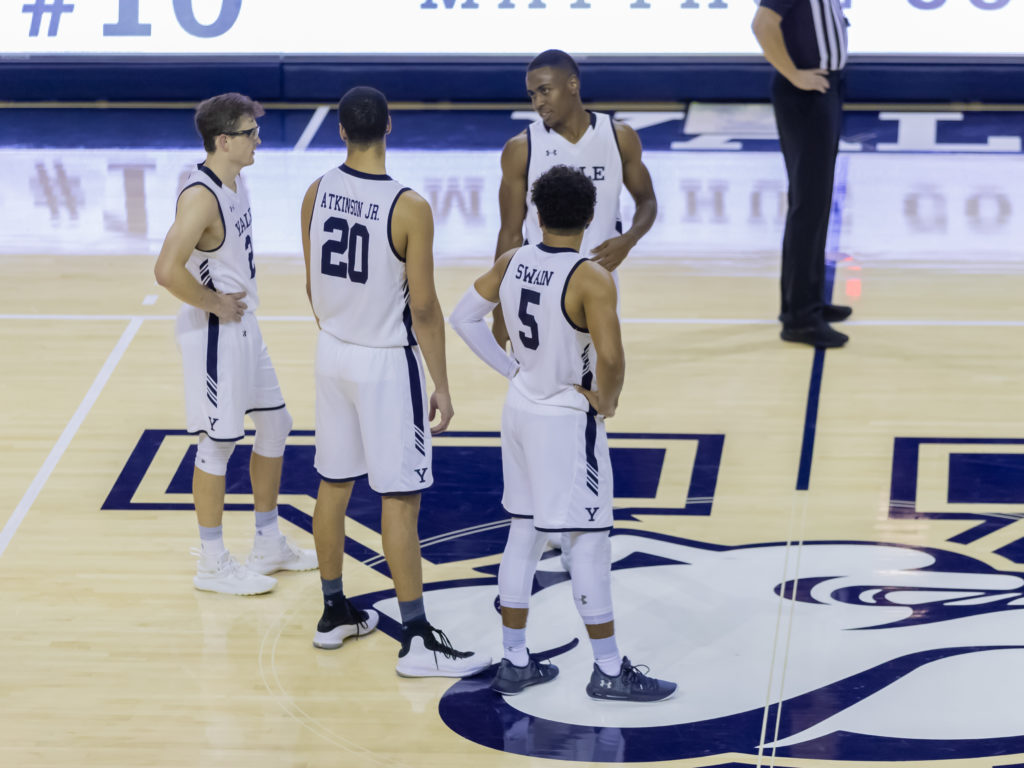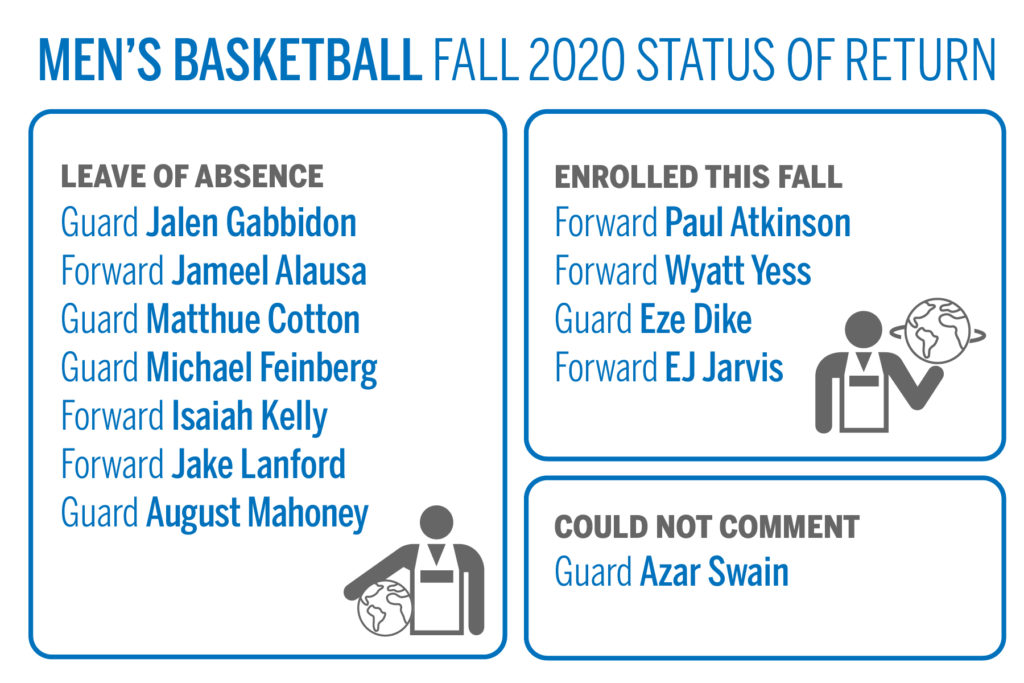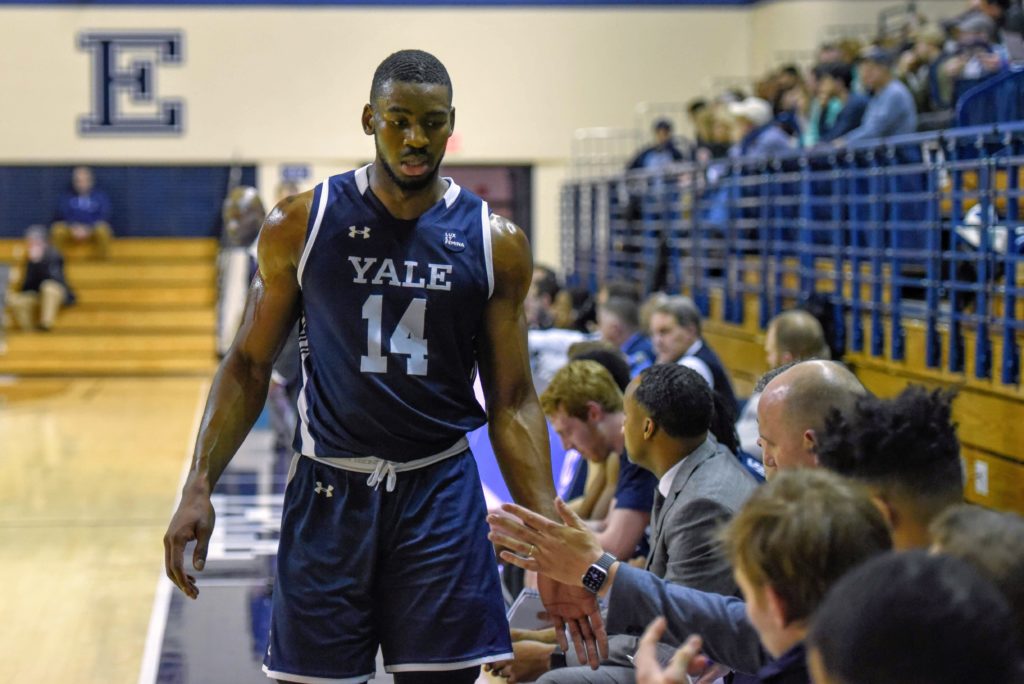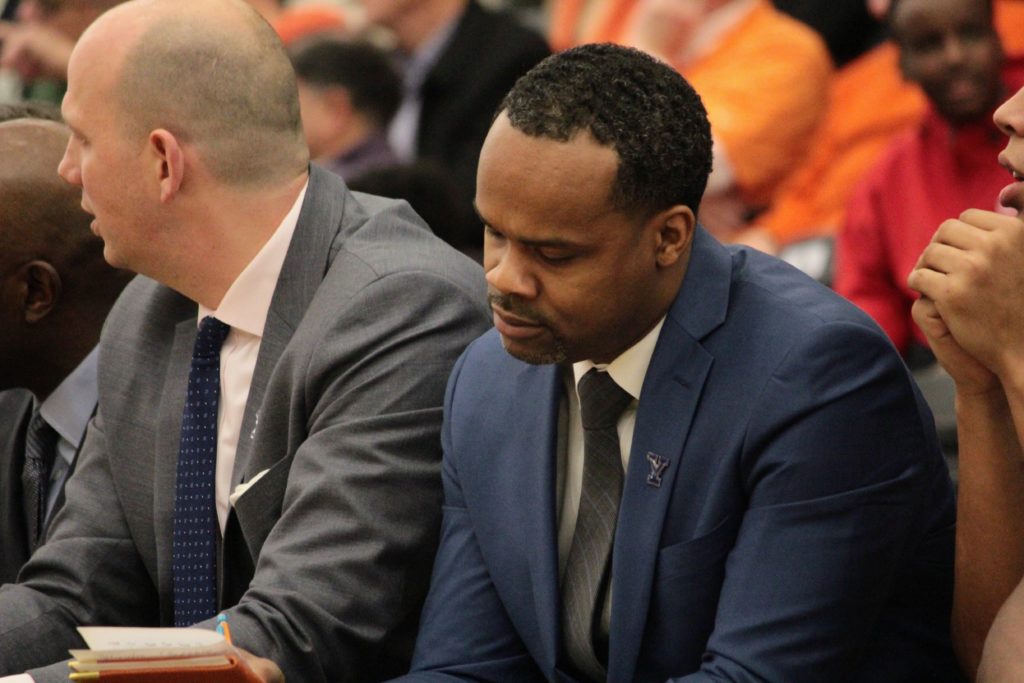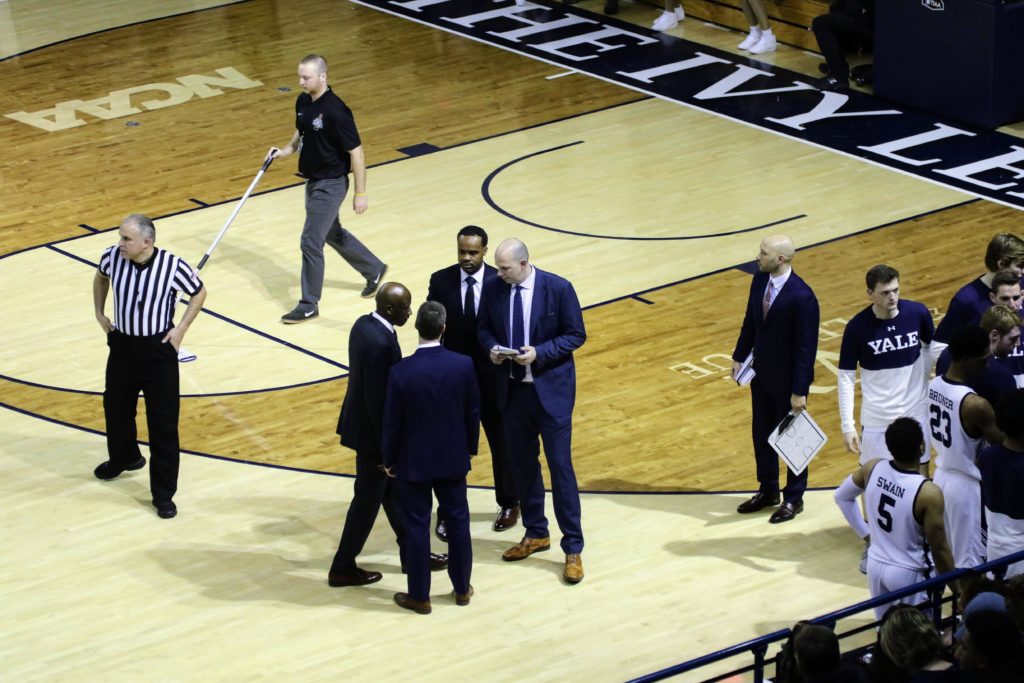MEN’S BASKETBALL: James Jones, hoping to encourage African American history course requirements, joins board at ABIS
Leave a CommentFor James Jones, George Floyd’s killing at the hands of a Minneapolis police officer in May sparked several discussions.
“I couldn’t have a conversation with anybody without the George Floyd murder coming up,” said Jones, who enters his 22nd season as the head coach of Yale men’s basketball this fall.
But Jones, who is Black, found that many people, especially those his age or older, had already decided where they stood on Floyd’s murder and race in America before dialogues began. As much as seeing “all different shades of people” protesting in New Haven encouraged him, he felt others had unfairly shifted the narrative around Black Lives Matter and efforts at change.
Earlier this month, Jones joined the Board of Directors for the Advancement of Blacks in Sports, a new national organization that seeks to promote racial, social and economic justice for Blacks in athletics and beyond. His players describe him as an optimist — staying locked at home with family in quarantine “is nothing” when Jones compares his current situation to sacrifices made during wars and other tragedies — and the head coach has real hope in America’s youth. At ABIS, he is co-chair of the “Teaching African American History” education initiative.
“We feel that the biggest problem with African Americans being shot for little or nothing is because of a lack of knowledge,” Jones said. “I think that [by] understanding people, it slows the fear of African Americans, so these things can cease to happen. If there was a better understanding of people that are next to you, if we understood the plight of people and who they are, it might make it easier for us to be able to live together.”
The committee, which also includes his younger brother and Boston University men’s basketball head coach Joe Jones, hopes everyone who goes to high school and college takes a class in African American history.
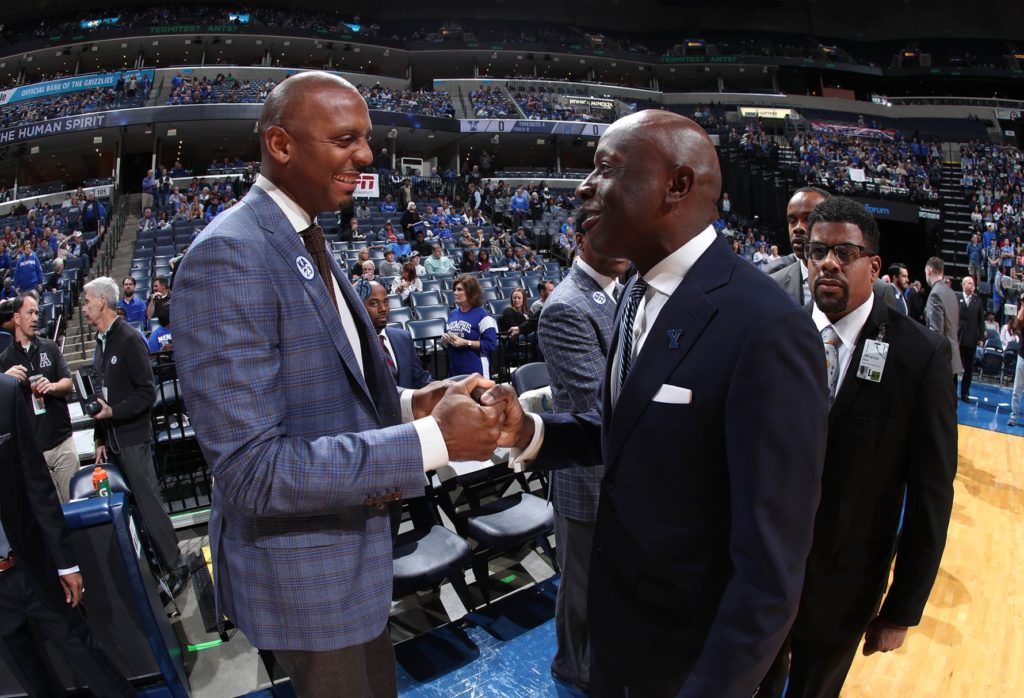
Jones and ABIS
Founded by grassroots basketball coach Gary Charles, ABIS primarily draws collegiate and AAU basketball coaches together with others involved in athletics. The group also features professionals in music, law and business on the Executive Committee and Board of Directors. Most involved with ABIS, though not all, are Black.
Jones said he had previously interacted with Charles at AAU basketball tournaments that the ABIS founder has organized. Younger brother Joe, Jones added, knows Charles well, and all three are from Long Island.
Both Joneses now have significant experience as Division I head coaches. With 333 career wins and 21 seasons after he earned the Yale job in 1999, James is the all-time winningest men’s basketball coach in school history and has the second most wins in Ivy League history. But James said being a Black head coach added pressure, particularly early in his career.
“You know if you’re not successful how this works: if I’m not successful, it’s not like they’re going to hire another African American to fill my shoes,” Jones said. “I felt like I needed to be successful to help the people after me.”
In 2019, after Yale won Ivy Madness and advanced to its second NCAA Tournament under Jones, he was recognized with the Ben Jobe Award, given annually to the top minority coach in Division I men’s basketball.
The examples of successful Black head coaches that came before him helped pave his way, he added.
“It wasn’t something that I acknowledged, but it’s something that I know was there for me knowing that [former Georgetown coach] John Thompson and [former Temple coach] John Chaney and [former Arkansas coach] Nolan Richardson were able to be successful at something I wanted to do,” Jones said. “Subconsciously, it made it easier to do what I did.”
ABIS, which officially launched at the start of September, consists of several sub-committees that devote attention to specific areas of focus within the organization’s mission of promoting racial, social and economic justice for Blacks. Among others, Georgia State men’s basketball coach Rob Lanier leads a group on the ACT and SAT; Howard men’s coach Kenny Blakeney chairs the voter registration committee; Cal women’s coach Charmin Smith and Depaul men’s coach Dave Leitao oversee a group around hiring practices; and Oklahoma State men’s coach Mike Boynton and Towson women’s coach Diane Richardson lead the Supplier Diversity Initiative. Boston University women’s coach Marisa Moseley is co-chair with Jones on the education initiative.
When it comes to his own committee work around African American history education, Jones said he has talked with a couple professors at Yale but declined to name them publicly. He said the committee’s original thinking was to approach the issue from a “macro” level, but they are now considering approaching the idea at the institutions and schools with which they are associated.
“I’d like to see [an African American history graduation requirement] everywhere in the country,” Jones said. “Not just at Yale. I’d like to see it everywhere in the country where people could understand each other … People have said they think they should change the name to All Lives Matter, but you’re not understanding what’s going on when you say stuff like that, you’re not really getting it. I think that’s the biggest problem — trying to educate people in terms of what’s happening.”
Jones specifically referenced the University of Pittsburgh, which over the summer introduced a required, one-credit course on anti-Black racism for all first-year students.
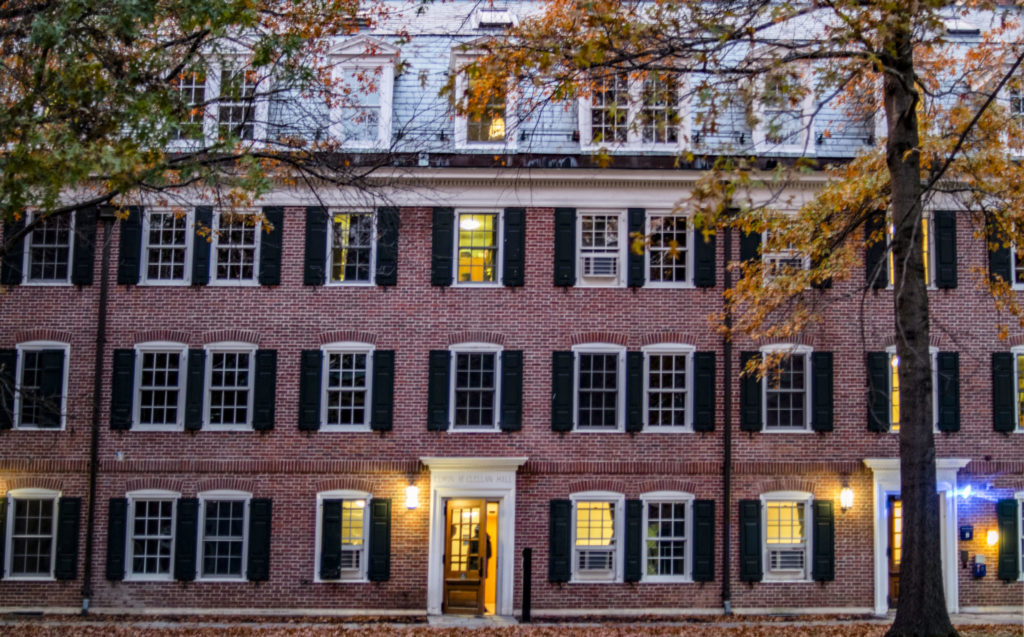



An African American history requirement at Yale?
Yale currently imposes area and skills requirements on undergraduates, asking students to complete a language requirement and take two course credits in each of the humanities and arts, social sciences and sciences, as well as two credits in classes that hone quantitative reasoning and writing skills.
“The Department of History’s distributional requirements are defined by geography and chronology,” History Department chair Alan Mikhail wrote in an email to the News. “We have not discussed formally changing that, but as Chair I am always open to student feedback and suggestions, of course.”
Mikhail added that the department’s course offerings often track student interests. This semester, he noted, the department’s most popular courses are on African American history, global health and the history of the political present. According to the most recent course demand statistics available on Sept. 6, 104 students are enrolled in “The Long Civil Rights Movement” taught by Crystal Feimster, making it the largest course in the History Department this fall.
Chair of the Department of African American Studies Jacqueline Goldsby GRD ’93 ’98 said that discussion around a possible African American history or ethnic studies requirement for Yale College has surfaced twice since she assumed her role as department chair in 2014. In November 2015, the student group Next Yale listed an ethnic studies distributional requirement as its first demand in a list presented to University President Peter Salovey.
The second instance occurred this past summer, when Aja Horwitz ’01 circulated a petition to make African American history a graduation requirement — not just at Yale, but at colleges in general. The petition received just over 2,000 signatures.
Goldsby said discussions this summer did not result in any formal vote, but the consensus was that faculty members needed to have a broad conversation about the topic that stretches across units that teach African American history. Faculty in History, American Studies and Women’s, Gender and Sexuality Studies, she noted, all teach significant strands of African American history in their work.
“We want everyone to learn about African American history,” Goldsby said. “That is not the question. We teach African American history every day. But why not Latinx history, why not Native American history, why not also Asian American history? … If Yale instituted a diversity requirement, why should it focus only on African American history?”
One potential solution would be to adopt a broader ethnic studies requirement, as the California State University system did in July. But beyond concerns around the specificity of a potential course requirement, the department also identified other cautions during informal discussions this summer.
Considerations around resources and departmental capacity influence large curricular changes. Goldsby said that to her knowledge, there are currently six faculty members whose research focus lies in African American history: David Blight, Crystal Feimster, Elizabeth Hinton, Matthew Jacobson, Edward Rugemer and Nicole Turner.
Personally, Goldsby feels the department may lose some autonomy over its hiring and priorities if African American Studies houses a requirement. Properly staffing a required course in African American history for over 6,000 Yale College students might skew the department’s ability to grow in other fields where its faculty teach, Goldsby said, including art history, anthropology, economics, French, literature, music, political science, psychology and sociology. The requirement could reshape hiring in the discipline, increasing faculty hires and graduate student admissions to field enough instructors who specialize in African American history.
Finally, Goldsby said department faculty thought requiring all students to take a course on something as sensitive as race could create hostile class environments that detract from the experiences of professors and other students. Although some students would certainly be interested and intellectually stimulated, faculty members — who might often be junior, non-tenured faculty of color, Goldsby said — could need to deal with students who resent being forced to complete such a requirement. The situation would also be challenging for tenured faculty, she added, while instructors in other required areas like QR-credit courses or language classes do not necessarily need to consider that racially charged class dynamic.
“This is not to say one doesn’t do this,” Goldsby said. “It’s to say these are the kinds of questions that need to be thought through.”
“The ways in which athletes and the whole athletic world are rising up is powerful and important,” she added. “We cherish [sports] as a space where we can come together, where there’s a kind of congregation, and all of us who watch and enjoy sports value it as a space of shared enthusiasm and experience. So for these athletes to say, ‘No, the world comes into the arena too,’ that’s a big deal, and I totally respect it.”
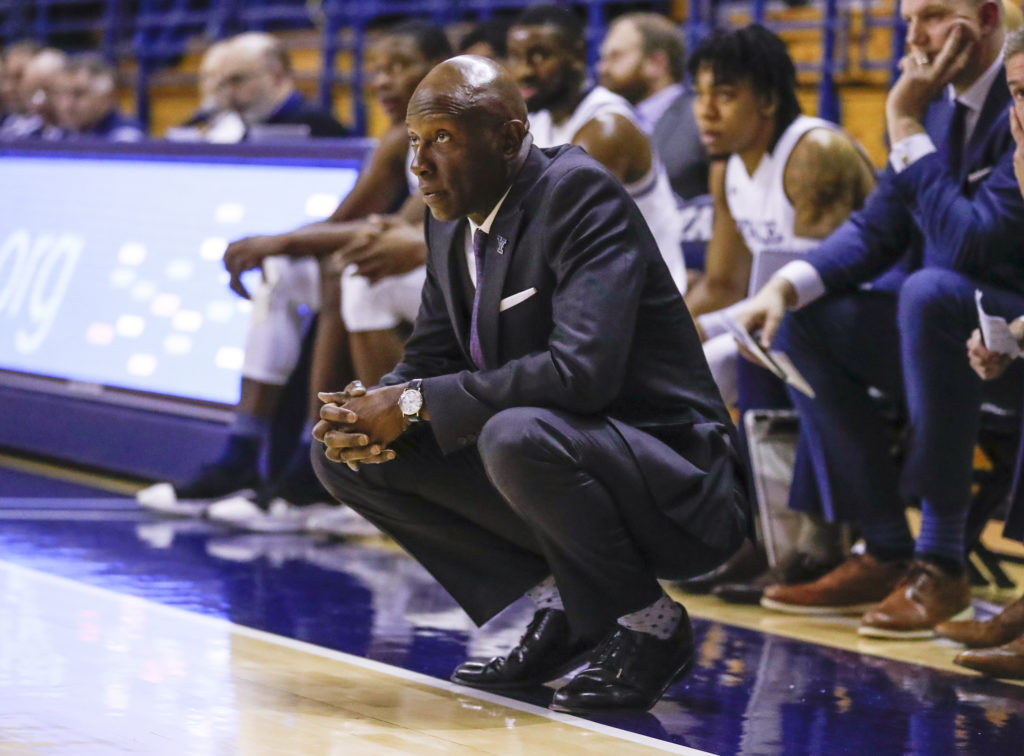



For Jones and ABIS, the work is just beginning. Jones discussed issues around race with many of his players over Zoom this summer, and ABIS group meetings now have him on Zoom every two weeks. His subcommittee on teaching African American history meets once every month, he said. ABIS has plans to add some student-athletes to its team, but Jones said the group is still working through that as it continues its launch.
Jones’ involvement in ABIS begins alongside what promises to be the most unusual season of his coaching career, if a season occurs at all. He is home in Pauli Murray College, where he receives COVID-19 testing like other members of the Yale community, and said it is nice to see students back in the courtyard interacting with each other. Phased strength training is set to start soon for the handful of his players enrolled in residence, and Jones said he has filled the program’s previously vacant director of basketball operations position, although the hire is still being processed.
His schedule this fall is largely free from the hectic routine that accompanies preseason practice, nonconference air travel and recruiting. ABIS, he said, is something he could have made time for regardless.
“Well, I think that [the time’s] certainly been helpful, but I’d like to also think that we would have found the time to try to do this work because of how necessary it is,” Jones said. “Our country is so divided in so many different ways, and if we can find ways to bring our country together, I think it would improve all of us.”
ABIS officially launched on Sept. 2, 2020.
William McCormack | william.mccormack@yale.edu





